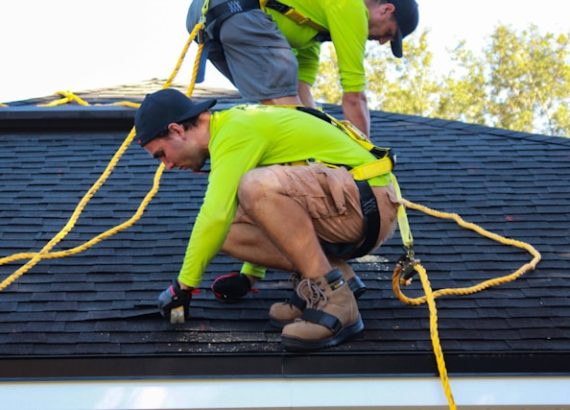4 Common Reasons Why Is My Circuit Breaker Tripping?

An electrical circuit breaker is a switching mechanism for managing and safeguarding the electrical power system and the related electrical equipment that can be turned on or off manually or automatically. When an excessive amount of power passes through it or when it is unable to handle the additional current load, the circuit breaker trips. In order to prevent your circuits from overheating or suffering additional damage, the electricity supply is switched off. House fires would have been a frequent occurrence if circuit breakers hadn’t tripped. Finding the source of the issue will enable you to permanently resolve it, even though you could easily reset the circuit breaker whenever it trips. Circuit overload, short circuit, and ground fault are common causes of your breaker tripping often. To help you better address your circuit breaker and electrical system problems, we made this guide that goes over some of the most common reasons behind circuit breakers tripping.

Table of Contents
1. Ground Fault
When a ground fault occurs, the breaker trips because it senses that electricity is traveling in an unauthorized direction. There are two varieties of ground fault detection that are available for permanent installation: the external type that is located externally and communicates with the breaker and the circuit breaker type that installs inside the circuit breaker itself (trip unit). If there are ground fault surges, the area surrounding your outlet will get discolored.
2. Short Circuits
A short circuit is another frequent cause of a breaker tripping. An improper connection between two nodes of an electric circuit that should be at different voltages is called a short circuit. When a hot wire in one of your electrical outlets comes into contact with a neutral wire, a short circuit occurs. When this occurs, the circuit will experience an excessive quantity of current flow, producing more heat than it can manage. When this occurs, the circuit breaker will continue to trip, cutting off the circuit to stop potentially harmful situations like a fire. Numerous factors, like loose connections or damaged wiring, can lead to short circuits. Just like ground faults, you will also see discoloration in short circuits.

3. Overloaded Circuits
Generally speaking, an overloaded circuit is the number one cause of a circuit breaker trip. A circuit is attempting to pull more power than it is intended to handle. As a result of this excessive power, circuit wires can get heated, and the circuit breaker recognizes this. As a result of this, the breaker cuts off the electricity.
4. Defective Circuit Breaker
If you’ve eliminated all of the other options, maybe your circuit breaker is the problem. Over time, naturally, it will wear out, and after having it checked by a professional electrician, if it’s not salvageable, you might have to change it.
Need Professional Assistance?
Getting assistance from a professional to fix a tripped breaker might be a smart option. If you are looking for a reliable electrician in Houston who is qualified to safely diagnose and repair short circuits, overloaded circuits, and ground faults, call the professionals of Mr. Electric of Katy. In addition, a professional will be better suited to maintain your electrical panel and swap out any breakers that are old, broken, undersized, or otherwise close to failing. So, call us today to contact your trustworthy electrician in Rosenberg.












